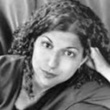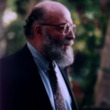Unorthodox: The Scandalous Rejection of My Hasidic Roots
(Libby/OverDrive eBook, Kindle)
Available Platforms
Description
More Details
Excerpt
Similar Titles From NoveList
Similar Authors From NoveList
Published Reviews
Booklist Review
Feldman spent her first 20-odd years growing up in the ultraorthodox Satmar community. As the daughter of a mother who left to live as a lesbian, Feldman already was marked as different. Raised by her grandparents, she tried to go along to get along, but after marrying, at age 17, she knew a Hasidic life was not the one she wanted to live. There's no doubt that Feldman's evolution as well as her look inside a closed community make for fascinating reading. But this also seems to be a book written to settle scores, especially with the author's inlaws. Moreover, after all the buildup to her leaving, Feldman leaves many questions unanswered, primarily, how did she get custody of her son, the very thing she said the community would not allow? The final photo of her in jeans, smoking a cigarette, doesn't convey the image of the liberated woman she's trying for, but her storyteller's sense and a keen eye for details give readers a you-are-there sense of what it is like to be different when everyone else is the same.--Cooper, Ilene Copyright 2010 Booklist
Publisher's Weekly Review
Born into the insular and exclusionary Hasidic community of Satmar in Brooklyn to a mentally disabled father and a mother who fled the sect, Feldman, as she recounts in this nicely written memoir, seemed doomed to be an outsider from the start. Raised by devout grandparents who forbade her to read in English, the ever-curious child craved books outside the synagogue teaching. Feldman's spark of rebellion started with sneaking off to the library and hiding paperback novels under her bed. Her boldest childhood revolution: she buys an English translation of the Talmud, which would otherwise be kept from her, so that she might understand the prayers and stories that are the fabric of her existence. At 17, hoping to be free of the scrutiny and gossip of her circle, she enters into an arranged marriage with a man she meets once before the wedding. Instead, having received no sex education from a culture that promotes procreation and repression simultaneously, she and her husband are unable to consummate the relationship for a year. The absence of a sex life and failure to produce a child dominate her life, with her family and in-laws supplying constant pressure. She starts to experience panic attacks and the stirrings of her final break with being Hasidic. It's when she finally does get pregnant and wants something more for her child that the full force of her uprising takes hold and she plots her escape. Feldman, who now attends Sarah Lawrence College, offers this engaging and at times gripping insight into Brooklyn's Hasidic community. (Feb.) (c) Copyright PWxyz, LLC. All rights reserved.
Kirkus Book Review
Copyright Kirkus Reviews, used with permission.
Booklist Reviews
Feldman spent her first 20-odd years growing up in the ultraorthodox Satmar community. As the daughter of a mother who left to live as a lesbian, Feldman already was marked as different. Raised by her grandparents, she tried to go along to get along, but after marrying, at age 17, she knew a Hasidic life was not the one she wanted to live. There's no doubt that Feldman's evolution as well as her look inside a closed community make for fascinating reading. But this also seems to be a book written to settle scores, especially with the author's inlaws. Moreover, after all the buildup to her leaving, Feldman leaves many questions unanswered, primarily, how did she get custody of her son, the very thing she said the community would not allow? The final photo of her in jeans, smoking a cigarette, doesn't convey the image of the liberated woman she's trying for, but her storyteller's sense and a keen eye for details give readers a you-are-there sense of what it is like to be different when everyone else is the same. Copyright 2011 Booklist Reviews.
Library Journal Reviews
It's hard to imagine life in any strict religious community, and the Satmar Hasidim seem particularly remote from the experiences of many Americans. Raised in a Satmar Hasidim community in Brooklyn, Feldman gives us special insight into a closed and repressive world. Abandoned by her mother and married off at 17 to a man she had known for less than an hour, Feldman started taking classes at Sarah Lawrence College and soon determined that she had to leave the community, together with her young son. At first glance, her memoir is fresh and tart and quite absorbing.
[Page 58]. (c) Copyright 2011. Library Journals LLC, a wholly owned subsidiary of Media Source, Inc. No redistribution permitted.Publishers Weekly Reviews
Born into the insular and exclusionary Hasidic community of Satmar in Brooklyn to a mentally disabled father and a mother who fled the sect, Feldman, as she recounts in this nicely written memoir, seemed doomed to be an outsider from the start. Raised by devout grandparents who forbade her to read in English, the ever-curious child craved books outside the synagogue teaching. Feldman's spark of rebellion started with sneaking off to the library and hiding paperback novels under her bed. Her boldest childhood revolution: she buys an English translation of the Talmud, which would otherwise be kept from her, so that she might understand the prayers and stories that are the fabric of her existence. At 17, hoping to be free of the scrutiny and gossip of her circle, she enters into an arranged marriage with a man she meets once before the wedding. Instead, having received no sex education from a culture that promotes procreation and repression simultaneously, she and her husband are unable to consummate the relationship for a year. The absence of a sex life and failure to produce a child dominate her life, with her family and in-laws supplying constant pressure. She starts to experience panic attacks and the stirrings of her final break with being Hasidic. It's when she finally does get pregnant and wants something more for her child that the full force of her uprising takes hold and she plots her escape. Feldman, who now attends Sarah Lawrence College, offers this engaging and at times gripping insight into Brooklyn's Hasidic community. (Feb.)
[Page ]. Copyright 2011 PWxyz LLCReviews from GoodReads
Citations
Feldman, D. (2012). Unorthodox: The Scandalous Rejection of My Hasidic Roots . Simon & Schuster.
Chicago / Turabian - Author Date Citation, 17th Edition (style guide)Feldman, Deborah. 2012. Unorthodox: The Scandalous Rejection of My Hasidic Roots. Simon & Schuster.
Chicago / Turabian - Humanities (Notes and Bibliography) Citation, 17th Edition (style guide)Feldman, Deborah. Unorthodox: The Scandalous Rejection of My Hasidic Roots Simon & Schuster, 2012.
Harvard Citation (style guide)Feldman, D. (2012). Unorthodox: the scandalous rejection of my hasidic roots. Simon & Schuster.
MLA Citation, 9th Edition (style guide)Feldman, Deborah. Unorthodox: The Scandalous Rejection of My Hasidic Roots Simon & Schuster, 2012.
Copy Details
| Collection | Owned | Available | Number of Holds |
|---|---|---|---|
| Libby | 1 | 0 | 1 |

































